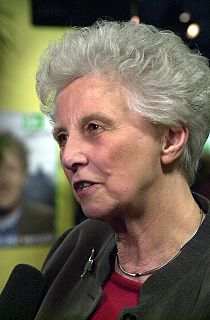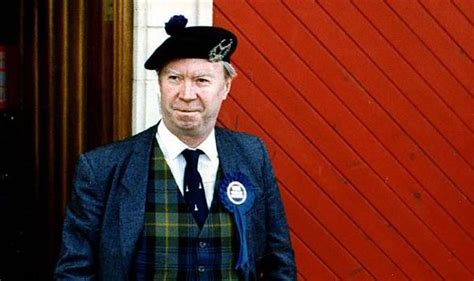A Quote by Els Borst
If I had been prime minister, I would have offered apologies to the Dutch Jewish community without hesitation. This would refer both to our government's attitude during the Second World War and to the very late postwar discovery that the restitution process had been poorly conceived.
Related Quotes
I can't say with certainty that slavery would have ended more quickly and more completely if the South had been allowed to leave and escaped former slaves had been allowed to remain free, and the North and the rest of the world had been a positive influence on the South. However, it's certainly a possibility that it would have ended sooner if the southern slave owners had agreed to a system of compensated emancipation and freed the slaves without a war and without secession, as most nations that ended slavery did. That absolutely would have been preferable to the Civil War as it happened.
Under the guidance of the Reich, Europe would speedily have become unified. Once the Jewish poison had been eradicated, unification would have been an easy matter. France and Italy, each defeated in turn at an interval of a few months by the two Germanic Powers, would have been well out of it. Both would have had to renounce their inappropriate aspirations to greatness. At the same time they would have had to renounce their pretensions in North Africa and the Near East; and that would have allowed Europe to pursue a bold policy of friendship towards Islam.
David Lloyd George had been to Germany, and been so dazzled by the Führer that he compared him to George Washington. Hitler was a 'born leader', declared the befuddled former British Prime Minister. He wished that Britain had 'a man of his supreme quality at the head of affairs in our country today'. This from the hero of the First World War! The man who had led Britain to victory over the Kaiser!
Religion is as necessary to reason as reason is to religion. The one cannot exist without the other. A reasoning being would lose his reason, in attempting to account for the great phenomena of nature, had he not a Supreme Being to refer to; and well has it been said, that if there had been no God, mankind would have been obliged to imagine one.
A gentleman who for reasons of chivalry I shall not mention, but who occupied grand office, and who had taken grandly of wine and allowed veritas to overcome him, went up to the Prime Minister and told her he had always fancied her, to which the Prime Minister replied, "Quite right - you have very good taste but I just don't think you would make it at the moment.
This is an issue that the Prime Minister put on the COAG agenda. First of all, it is something that would only apply in an extreme case where the service by a terrorist of a sentence of imprisonment had in no way curbed their desire or their intention to commit terrorist offences in the community, so that this is a - would be a public safety measure. The second point I'd make to you is that this is not unknown to the law.
I was a very senior minister in the Howard government and I sat around this particular table [in the prime ministerial office] in many discussions. The difference between being a senior minister and the prime minister is that ultimately the buck does stop with the prime minister and in the end the prime minister has to make those critical judgement calls and that's the big difference.
Things have gotten openly more extreme in the last few years. I was lecturing in Hungary, whose prime minister, Victor Orban, is an example of this trend. All over Budapest, statues have been replaced, museum exhibits have been redone, to turn ethnic Hungarians, not Jews, into the prime victims of the Germans during World War II. Five years ago, who would have thought this possible?
If the emperor had capriciously decreed the death of the most eminent and virtuous citizen of the republic, the cruel order would have been executed without hesitation by the ministers of open violence or of specious injustice. The caution, the delay, the difficulty with which he proceeded in the condemnation and punishment of a popular bishop, discovered to the world that the privileges of the church had already revived a sense of order and freedom in the Roman government.
Our prime minister could embrace and forgive the people who killed our beloved sons and fathers, and so he should, but he could not, would not, apologise to the Aboriginal people for 200 years of murder and abuse. The battle against the Turks, he said in Gallipoli, was our history, our tradition. The war against the Aboriginals, he had already said at home, had happened long ago. The battle had made us; the war that won the continent was best forgotten
A discovery must be, by definition, at variance with existing knowledge. During my lifetime, I made two. Both were rejected offhand by the popes of the field. Had I predicted these discoveries in my applications, and had those authorities been my judges, it is evident what their decisions would have been.

































